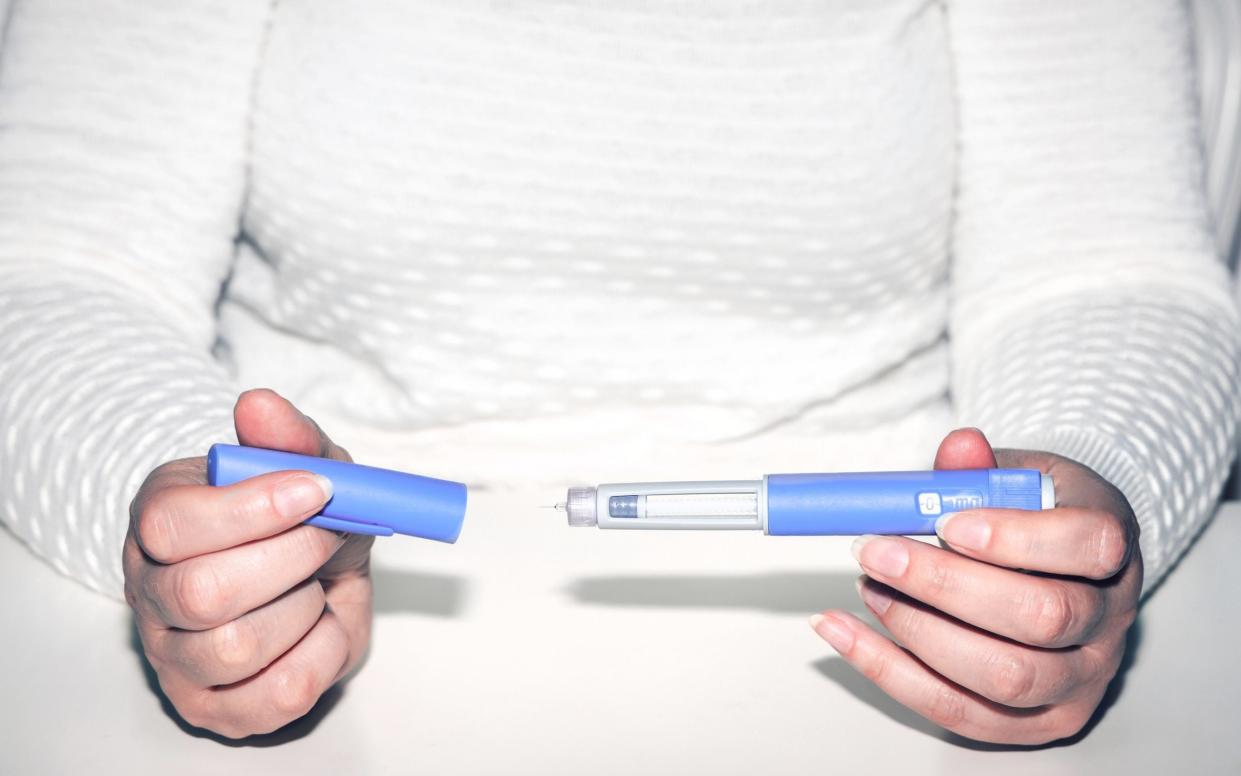Ozempic patients claim weight-loss jab has improved their fertility

Sexually active women are becoming unexpectedly pregnant when using weight loss drugs such as Ozempic and Wegovy, it has been claimed.
In recent months, several women have come forward on social media to say they conceived while having injections of the GLP-1 hormone-mimicking drug which was originally developed for diabetes.
The phenomenon – dubbed the “Ozempic” or “oops” babies – has led some doctors in the United States to prescribe the drugs off-label to treat polycystic ovary syndrome, one of the leading causes of infertility in American women.
However, many experts believe that it is not the drugs themselves, but the benefits they bring, which is behind the unexpected pregnancies.
Fat cells produce oestrogen which can have a negative impact on fertility, so even losing a few pounds can help lower hormone levels and regulate menstruation and ovulation, with some women reporting their periods have returned “like clockwork”.
The drugs also work by delaying the stomach from emptying which could prevent oral contraceptives from being absorbed effectively by the body.
And many of the GLP-1 agonists treatments have side-effects of vomiting and diarrhoea which could also lessen the impact of contraceptives.
Weight loss boosts sex
Several studies have also shown that weight loss boosts sexual function and activity.
“The ‘oops’ babies on Ozempic and Wegovy are happening all over the place,” said Melanie Cree, director of the polycystic ovary syndrome clinic at Children’s Hospital Colorado in Aurora.
“It’s very exciting, but it’s a bit scary because we’re moving forward without all the data.”
However, there are concerns about being pregnant while taking the drugs after studies on rats, monkeys and rabbits showed they could lead to miscarriage and birth defects.
Ozempic’s producer Novo Nordisk recommends women should stop taking the weight-loss drugs at least two months before a planned pregnancy.
Torria Leggett, 40, a social worker from Whiteville, North Carolina, became pregnant after taking Novo’s Ozempic to treat obesity, then switching to Eli Lilly’s version, Mounjaro.
“I thought I couldn’t have any more kids,” she said. “The weight loss, that’s likely what jump-started it. I couldn’t believe it,” she said.
However, some women are reporting intense symptoms of extreme hunger and rapid weight gain after being advised to quit the drugs during pregnancy.
There have also been reports of women gaining three times the normal pregnancy weight.
Doctors are concerned that such extreme weight gain in pregnancy could lead to the development of gestational diabetes, and having a large baby which needs to be delivered by Caesarean section.
Gestational diabetes also puts babies at higher risk of low blood sugar, developing Type 2 diabetes later in life and being born prematurely.
GLP-1 agonists, such as semaglutide and liraglutide, were originally developed for controlling blood sugar levels for people with Type 2 diabetes.
Although Ozempic is only authorised for diabetes on the NHS, Wegovy and Saxenda have now been approved for overweight or obese adults.
Saxenda, an older obesity drug, has also been shown to raise pregnancy rates in women.

 Yahoo News
Yahoo News 
